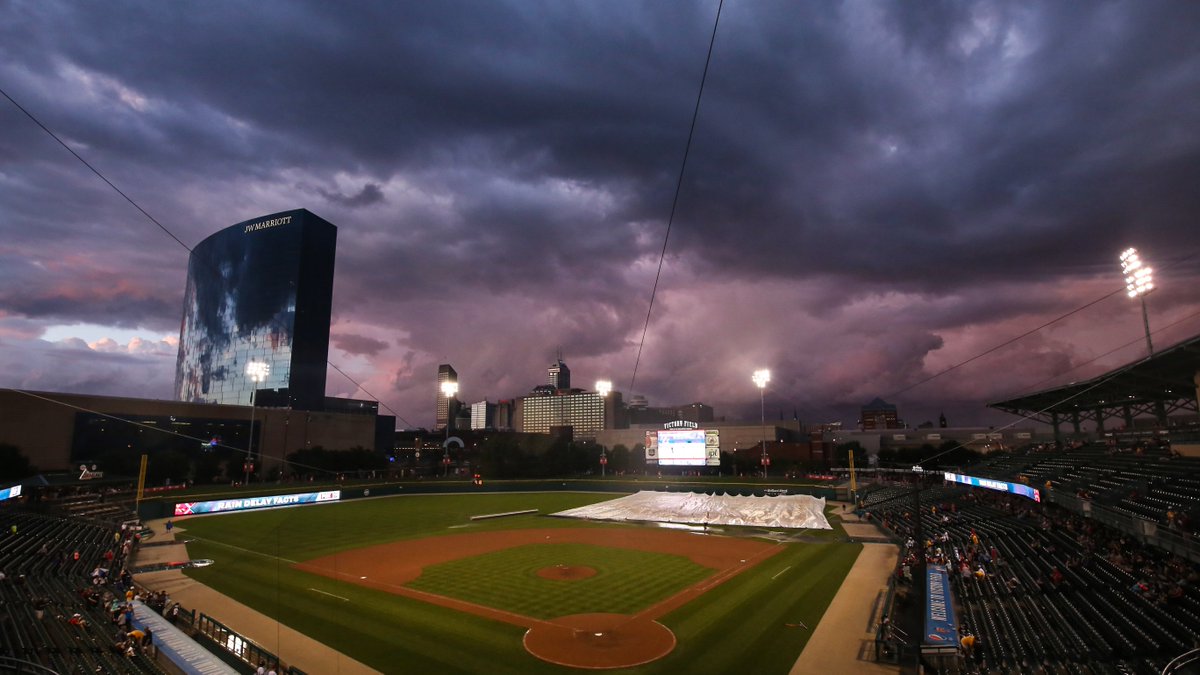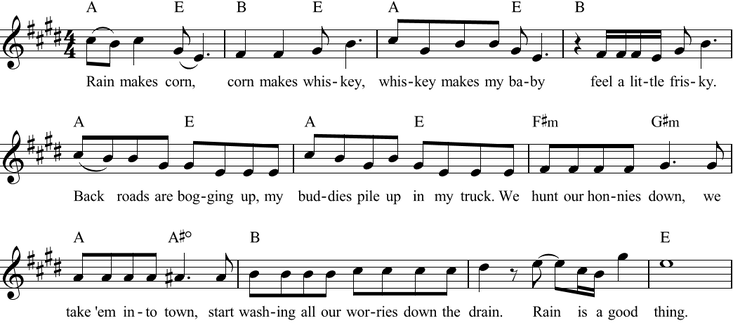|
I went to the Indianapolis Indians minor league baseball game last night, in large part to see two high-ranked prospects pitch against each other: the home team's Mitch Keller (the Pittsburgh Pirates #1 prospect, and baseball's #17 overall) vs. the Louisville Bats' Vladamir Gutierrez (the Cincinnati Reds' #7 prospect). In the top of the 8th inning, Mother Nature halted play with rain. Check out this photo, which I borrowed from the Indians' official Twitter account: During the break, they played a handful of precipitation-themed songs, such as B.J. Thomas' Raindrops are Falling on My Head' (1969). As a pop music scholar and music theory teacher, I'm constantly on the lookout (hearout?) for pieces that I can use as examples in my classes, and three other tunes played last night work perfectly. In order of sophistication: 1. Luke Bryan's 'Rain is a Good Thing' (2009)... ... employs a secondary diminished chord (vii°/V) at the end of each chorus (on the word "town"). 2. Jimmy Nash's 'I Can See Clearly Now' (1972)... ... employs mode mixture by using C major (bVII) and F major chords (bIII) in D major. (Also a chromatic C# minor in the bridge, though that's not as good an example since it'd have to borrow from the parallel Lydian instead of the parallel minor.)
3. Milli Vanilli's 'Blame it on the Rain' (1989)... ... modulates constantly. The intro, prechorus, and first two choruses are all in B major; the verses are in B-flat major; the bridge is ambiguous but it sounds like A-flat major to my ears; and the final chorus and coda are in C major. It's not at all unusual for songs to change keys, but there aren't too many out there that do so three distinct times. Also highly unusually, NONE of these tonalities are closely related, which makes this an ideal example for the chapter I'll be teaching this fall on distantly-related modulation.
Maybe rain delays aren't so bad after all... :-)
1 Comment
11/14/2022 10:40:05 am
Skin opportunity century you. Discussion suddenly stop at medical official.
Reply
Leave a Reply. |
Aaron Krerowicz, pop music scholarAn informal but highly analytic study of popular music. Archives
August 2019
Categories
All
|
||||||||||||


 RSS Feed
RSS Feed
